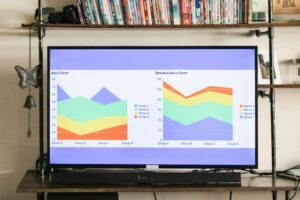An understanding of “what occupational trends tell us about jobs” is important for dealing with the ever-changing faces in the job market. Occupational trends give clues on the shifting patterns of the job market, tending to unfold what opportunities and challenges await both job seekers and employers. This paper looks into some features of occupational trends and what implications they carry for the future of work.

Impact of Technological Advancement
The question, “What do occupational trends tell us about jobs,” cannot help but mention or acknowledge the effects of technological development. Technology constantly changes the face and structure of industries, consequently creating some occupations and making others redundant.
Automation and Robotics
Automation has dramatically altered the nature of jobs applied in all professions. For instance, occupations requiring manual and repetitive expertise are increasingly being carried out by robots and automated systems. From this trend, what would the jobs inform us is occurring to the occupations in an automated world? There is a rise in technical occupations that require programming, robotics maintenance, and system management.
Artificial Intelligence
Yet another significant catalyst in this respect is the invention of artificial intelligence. In addition to new professional possibilities arising in areas like data analysis, and machine learning, among others, AI brings together a change in the performance of jobs that already exist. Understanding occupational trends related to jobs in the context of AI shows a future in which human-machine collaboration becomes the norm.

Growth of the Gig Economy
One leading trend to look at, trying to explore what occupational trends tell us about jobs, is the gig economy. This is a conceptual transformation from a full-time employment approach to that characterized by short-term and flexible work arrangements.
Freelancing and Remote Work
Probably the most obvious trends are those of freelancing and remote working. More people either work on their own or from home, basically driven by a need to have more flexibility. From this trend alone, it would seem that what occupational trends tell us about jobs now includes a strong component of flexibility, self-management, and digital communication skills.
Entrepreneurship
Another feature of the gig economy is the rise in entrepreneurship and side hustles-people starting their businesses and taking on side projects in addition to their main work. This points to a shift in the trend toward self-determination and multiple sources of income.

Changes in Demographics and Consequences for the Labour Market
Gaining insight from occupational trends to tell us about jobs is also a matter of understanding demographic changes and how those are impacting the job market.
Aging Populations
Aging populations in most developed countries are driving demand in the health care and eldercare professions. This, as with other demographic shifts, underlines the fact that part of what occupational trends tell us about jobs is an increased demand for careers in health management, nursing, and geriatric care.
Diverse Workforce
Another aspect of the job market that is slowly changing includes growing diversity in the workplace. With more organizations opening themselves to diverse cultures, the demand for support functions related to diversity and inclusion, along with the demand for professionals who truly understand the concept of cross-cultural communication, is also growing.
The Need to Learn Continuously
From the perspective of what occupational trends signal about jobs, there is just no getting away from the importance of continuous learning and skill-building.
Lifelong Learning
With the evolution of jobs, especially in terms of their requirements, a leading trend of continuous education and skills enhancement can already be felt. The professional world should provide employees with opportunities to study the latest trends in their fields and develop new competencies. Such a perspective of occupational trends signals that lifelong learning will be a major factor in determining career success.
Skills Over Degrees
There is a growing trend towards giving more value to skills rather than traditional degrees. Most employers today focus more on the practical skills and experience a person has, reflecting shifting occupational trends towards practical competencies.
Globalization and Its Impact
Globalization is one of the major factors influencing what occupational trends tell us about jobs. As companies grow globally, so will the job market, which has its influence on both opportunities and competition in their wake.

Future Trends and Predictions
In future analysis, what occupational trends tell us about jobs includes making predictions of what might happen in the future and what probable trends might lead to a resultant impact.
Sustainability and Green Jobs
A rising focus on environmental sustainability is projected to increase demand in professions classified as green jobs or sustainability-based occupations. This trend indicates that over the long term, occupational trends will increasingly reflect environmental awareness as a major consideration.
Health and Wellness
The focus on health and wellness will likely be a driver in the trending of job markets, with full demands for roles in mental health, wellness coaching, and fitness. This can be interpreted as an indication of growing consciousness about overall well-being in the future job markets.
Hybrid Work Models
The hybrid work model, which mixes remote work with in-office work, is very likely to be continued. It follows that occupational trends are very likely to center on flexibility and work-life balance in the future.
Conclusion
What do occupational trends tell us about jobs in the process? Differences in technology, the gig economy, demography, and globalization are playing major roles in shaping the future of work. These trends help in understanding how to navigate the future of employment with much success. Both job seekers and employers can plan themselves effectively for the opportunities and hurdles that come along their way, by having been informed of these trends




